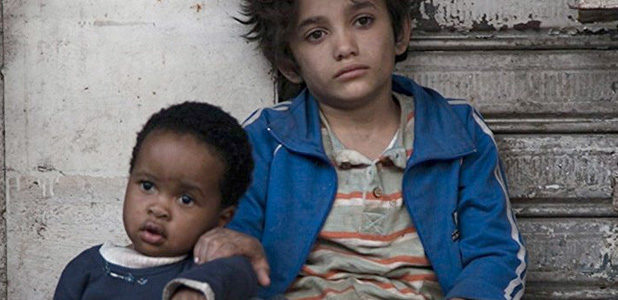
ReelBob: ‘Capernaum’ ★★★½
By Bob Bloom
Sometimes, a movie comes along that makes you forget it’s a picture and preys on your soul and your conscience to the point that you feel you need to jump into the frame to try helping those on screen.
Intellectually, you know that it’s impossible, but emotionally you are seized by an urgency to somehow shape for the better the events unfolding before you.
Thus, it is with director Nadine Labaki’s “Capernaum.” This Lebanese feature — a foreign-language film Academy Award nominee — shot in a cinema-verité manner with nonprofessional performers, centers on Zain, a 12-year-old boy who sues his parents for giving him life.
Zain is a tough, streetwise kid, who scrounges around for items to sell to help put food on the table for his poverty-stricken family.
His parents are negligent and despairing, seemingly having given up on life. They verbally and physically abuse Zain, who desperately tries to protect his younger brothers and sisters, especially his11-year-old sister, Sahar.
After one final betrayal by his parents, Zain flees, living on the streets, getting food and surviving any way he can.
He meets Rahil, an Ethiopian refugee and her baby son, Yonas. In exchange for food and shelter, he agrees to care for Yonas while Rahil works.
Circumstances again fall on Zain, forcing him to grow up quickly. A child himself, he must become the baby’s caregiver. He does whatever is necessary to keep Yonas out of harm’s way.
“Capernaum,” which translates as “Chaos,” is about those forgotten or ignored people — the outliers of society whom we all pass by without even a glance.
The movie pulls at you, not only for the injustice of a young boy taking on the role of man, but because, despite his dire situation, Zain is able to survive. You ache for and admire the boy and wish that fate would deal him some aces instead of deuces.
You want to wrap Zain in a cocoon of safety and somehow whisk him away to a better life.
Labaki uses a cinematic style reminiscent of the neo-realism movement in post-World War II Italy, in which films such as “Rome, Open City” and “The Bicycle Thieves,” galvanized audiences with their commitment to truth; shooting on locations and mostly using nonprofessional actors in leading roles and local people as extras.
“Capernaum” stresses the resilience not only of Zain and, to a lesser extent, Rahil, but of all the children forced to live and survive by selling wares and peddling on the streets, so they can earn enough money simply to avoid starvation.
Zain finally is arrested for a brutal crime linked to Sahar. In prison, he calls a talk-television program where he announces that he wants to sue his parents.
His plea gets him a lawyer and his day in court. The movie is told mostly in flashback, as it begins with a judge hearing Zain’s case.At 123 minutes, “Capernaum,” which features English subtitles, gets bogged down a few times. Yet, you cannot turn away — not so much because of the subject matter, but because Zain, played by Zain Al Rafeea, clings to your heart.
He is foul-mouthed and unkempt, but you empathize with him and hope he can escape the misery around him before it crushes his psyche and spirit. Al Rafeea also allows you to see the vulnerability Zain covers with his tough veneer.
The movie also makes statements about the life of the poor and the undocumented who fall prey to others who want to exploit their misfortunes. But Labaki also offers a glimmer of hope, with glimpses of people who reach out to help.
“Capernaum” is a brutal and hard movie to digest; it also is a harder movie to forget.
I am a founding member of the Indiana Film Journalists Association. My reviews appear at ReelBob (reelbob.com) and Rottentomatoes (www.rottentomatoes.com). I also review Blu-rays and DVDs. I can be reached by email at bobbloomjc@gmail.com or on Twitter @ReelBobBloom. Links to my reviews can be found on Facebook, Twitter and LinkedIn.
CAPERNAUM
3½ stars out of 4
(R), language, drug use